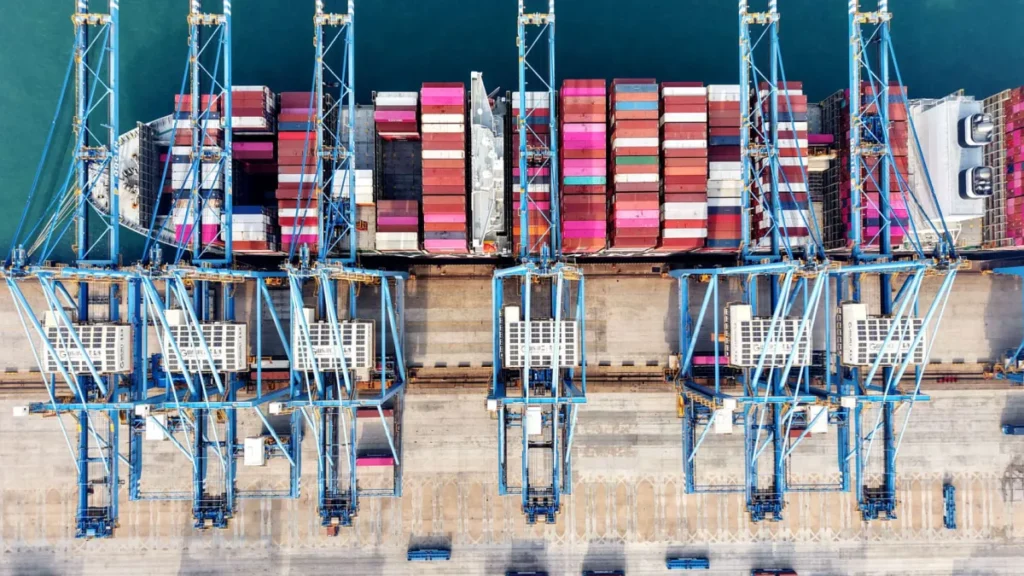Niche ocean carrier Atlantic Container Line is warning the fines the U.S. government is considering hitting Chinese-built freight vessels with would force it to leave the United States and throw the global supply chain out of balance, potentially fueling freight rates not seen since Covid.
“This hits American exporters and importers worse than anybody else,” said Andrew Abbott, CEO of ACL. “If this happens, we’re out of business and we’re going to have to shut down.”
The United States Trade Representative held its second day of this week’s hearings on the fines that would be levied under Section 301 of U.S. trade law on Wednesday, with over 300 trade groups and other interested parties warning the government across comments letters and in testimony that the U.S. is no position to win an economic war that places ocean carriers using Chinese-made vessels in the middle. Soon, Chinese-made vessels will represents 98% of the trade ships on the world’s oceans.
The policy proposal, begun under the Biden administration and culminating in a January report concluding China’s shipbuilding industry had an unfair advantage, would allow the U.S. government to impose steep levies on Chinese-made ships arriving at U.S. ports. For Chinese-owned operators (such as Cosco), a service fee of up to $1 million could be charged on each vessel. For non-Chinese-owned ocean carriers with fleets containing Chinese-built vessels, the service fee would be up to $1.5 million for each U.S. port of call.
In ACL’s submitted commentary to the USTR, Abbott laid bare the economic difficulties his company would face, saying that if the U.S. government went ahead with the fines, it “would render us totally uncompetitive versus the other carriers in the US trades.”
ACL, which is the oldest continually operating container line in the world and is owned by Grimaldi Group of Italy, is the only operator of combination container-roll-on-roll-off ships between North America and North Europe.
If ACL abandoned the U.S. market, domestic manufacturers would lose their only U.S.-headquartered North Atlantic carrier, and primary North Atlantic carrier of oversized and project cargo to Europe. ACL handles vehicles, construction equipment, aircraft including Airbus wings, and project cargo, including more than half of the American construction equipment, agricultural equipment and oversized machinery moving from the ports of New York, Baltimore and Norfolk to Europe.
“All the Airbus wings are made here in the U.S. and we carry those to the UK,” Abbott told CNBC. “If we disappear, you’d have to find another brake bulk ship.”
Abbott made clear to CNBC that his company’s situation is unique and the largest ocean carriers will be able to better mitigate the impact of the potential fines. “I’m going to end up hitting a customer with a $2,000 to $2,500 charge, where the big guys might only have $800, so in today’s world, that is an enormous amount of money, and potentially could put us out of business. So we’d be forced to pull our ships out of the Atlantic, out of the U.S. trades, and probably stick them in Asia, that’s what we would do.”
The goal of the policy proposals are to revive the U.S. domestic shipbuilding industry, but many commentators have argued that these fines are the wrong way to pursue that goal. Abbott said this is why he went public with his company’s situation. “The Chinese operators that they’re trying to go against because of the way they operate their ships, and the number of ports that they’re calling, are probably going to be among the least affected by this new setup. So the guys you want to target are getting off scot free, and the guys who were in your own country get nailed,” Abbott said.
The closing of ACL’s U.S. offices would impact 300 employees in addition to the supply chain pipeline that supports them, such as truck drivers and warehouse workers.


